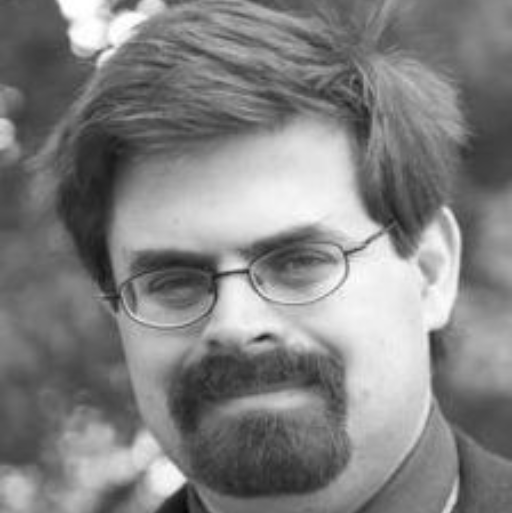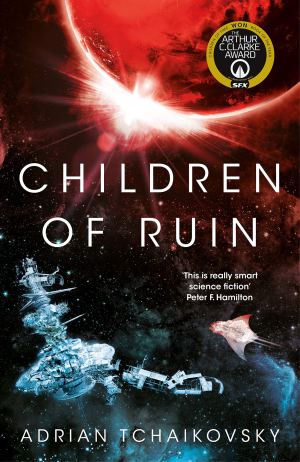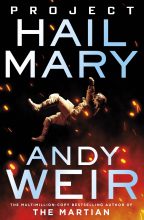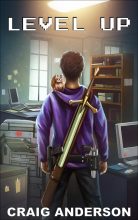Extract
PAST 1
JUST ANOTHER GENESIS
So many stories start with a waking. Disra Senkovi had been asleep for decades. Something like a lifetime passed back home while he slumbered; a fraction of a lifetime passed around his oblivious form, the timespan squeezed down the relativity gradient by his proximity to the speed of light. For him, though, there was no time, nothing but the oblivion of the cold-sleep chamber. They knew how to build them back in those days.
Senkovi chose the manner of his waking. Some of his colleagues – those he thought of as less imaginative – would let themselves be fed crucial mission data, news from home, metrics from the ship, so they could spring from cold-sleep with a mind full of data, ready to leap to their stations and steal a march on the day. Ludicrous, given the work they had ahead of them would take decades. Senkovi had always been unimpressed by most of his colleagues.
Instead, paradoxically, he woke himself with a dream.
He hung in the water of a warm, clean Coral Sea that hadn’t existed in that virgin state since long before his birth. The sun filtered down through the waters like an embarrassment of sapphires. Below him, his best-guess reconstruction of the vanished Great Barrier Reef extended in multicoloured profusion, reds, purples and greens as far as the eye could see, like an alien city. Life whirled about the coral metropolis in a riot of motion, swimming, jetting, drifting, crawling. He turned gently, casting a benign and godlike gaze over his creation, half-sleeping, half-knowing, so that he felt the joy of having brought this into being yet not the pain of knowing the original had long predeceased him.
At last, one of his special friends signaled its presence, squirming its malleable body from a crevice within the rocks and undulating cautiously towards him. Eyes like and unlike his own regarded him with the sort of ersatz wisdom nature otherwise gave only to owls. It – determining the gender of an octopus was not a task easily performed at this remove – reached an arm towards him, Adam to his divinity, and he let his hand drift outwards slowly to accept that touch.
It was a good dream. He’d programmed it himself, creating a complex sequence of mental stimulation that drew on his specific memories and jumbled them into something semi-novel. It was still dream-like, unreal, but that was what he was aiming for, so, fine. He also had to hack the ship computers with considerable ingenuity to make it happen, given that encounters with marine fauna were not on the à-la-carte menu when choosing a wake-up sequence. The hard part had not been inserting the neurological sequence into the ship’s database but erasing all sign of his meddling. By then he’d been in and out of the mission systems quite a lot without anyone noticing, though. Senkovi had come to the conclusion that the Terraform Initiative back home was very, very lax in its digital security, and then shrugged idly and carried on with his own personal tinkering. What, after all, was the worst that could happen?
Amongst his travels within the virtual architecture of the mission protocols, Disra Senkovi had also come face to face with Disra Senkovi, or at least the crew profile and assessment record of that name. While extreme technical expertise was a given with all crew, he was interested to see the results of his personality assessments. There were two main poles, for a multi-decade mission like this, and they pulled in opposite directions. One related to how well a crewmember could cope working in isolation for long periods of time, and how they might tolerate being severed from the great mass of humanity and the course of human history. He aced that one. The other related to working in close confinement alongside other human beings you simply could not escape from, and he was dismayed to see how close he had come to rejection on that ground alone. Senkovi felt himself an affable, outgoing man. From the age of nine he had been working on constructing pseudointelligences to have conversations with, and hadn’t he – more than anyone else in the crew – surrounded himself with pets back home? What better indication of a warm and loving human nature was there? He’d owned nineteen aquariums, three large enough to dive in. Many of the aquatic denizens were like close personal friends to him. How could anyone think him antisocial, let alone make all those unfair and hurtful comments?
He was being tongue-in-cheek, of course. They meant human friends, and that had never been his strong suit. Still, he had a few, and he worked well in a task-focused environment where everyone was fixed on a common goal. And when it came to R&R, well, if he wasn’t the life and soul of the party, at least he didn’t step on anybody else’s toes. And there was, in his humble opinion, not a human being alive who enjoyed jokes more than he did; it was just that nobody else found his funny.
Anyway, his general social inoffensiveness was just sufficient, when added to his undeniable competence, to get him on the crew, and then some combination of evaluations and computer subroutines kicked him up to be head of the Terraforming team, one below Overall Command, because if you had a slightly deranged genius on the team it was probably better to let him cox than row. That was the actual comment of the psychologist who recommended the promotion and Senkovi, having got into that file as well, treasured the perceived compliment.
But they needed him awake now. In that unreal ocean he strained, but the touch of the tentacle never quite reached his finger, and all his pets were long dead and gone on an Earth more than thirty light years away.
Disra Senkovi opened his eyes, aware that his beatific smile had crossed over from his dream and was still on his face. He felt refreshed and ready to start his day. A quick interrogation of the ship systems assured him they had arrived, their long cold journey done, the deceleration over. He sat up, stretching (more for the form of it than from any need, but he was used to doing all sorts of things because people do them, as a sop to the sensibilities of his fellows). He was neither alone in his sleeping compartment, nor surrounded by the bustle of a woken crew. Instead, his performance had an audience of one: Yusuf Baltiel, Overall Command.
‘Boss,’ Senkovi acknowledged. The lack of context to Baltiel watching him wake was disconcerting. Senkovi liked to have a handle on cause and effect and was usually smart enough to avoid surprises. He queried the ship again and found a weight of data embargoed, blocked from him, blocked from everyone except Baltiel himself. That’s not good.
‘I need a second opinion,’ Baltiel told him.
‘Let me guess, the planet’s not there?’ It had been the joke with the very first exoprobes – sometimes the data said there was an Earth-type planet but the indicators were just a bunch of other factors conspiring to give that impression. Of course, a probe had actually been shot out here, accelerating far faster than a manned ship could manage, checked that an actual terraformable planet was present and reported back. They wouldn’t just send a manned mission off on a whim, now, would they? Senkovi really didn’t want to have to turn around and go home.
‘There’s a planet.’ Only now did Senkovi notice the curious tension to Baltiel, a man generally in complete command of himself. He was practically vibrating like a plucked string. ‘There’s a planet,’ he repeated. ‘But there’s a problem. I’m keeping it hush, for now, but it’s too big for me to make the call. I need you to see.’
Because of the embargo – which Senkovi felt was a childish way to go about things – they actually had to walk to Overall Command to see the thing Baltiel was so agitated about. Everyone else was still peacefully on ice. Who, then, was all this cloak and dagger supposed to thwart? He kept throwing queries at the system to find out what he could and couldn’t know, because the computer wasn’t able to tell him what was off limits until he hit a nerve and it clammed up on him. Actual walking from one place to another was, in Senkovi’s book, something the future should have done away with long before, and his legs were having difficulty with the rotational gravity so that he bandy-kneed his way around the edge of the crew ring behind Baltiel’s brisk stride. Baltiel was blocking transmission back home, he discovered uneasily, despite the fact that any urgent cry for help Senkovi might make would take thirty years and change to arrive. It wasn’t like he’d be able to hold a murderous Baltiel off for that long, or indeed at all.
‘Just tell me, boss,’ he complained to the man’s back.
Baltiel stopped, turned. There was a kind of fervour in his face that made Senkovi flinch. He’s found God, was his instant thought, which was all sorts of extra not good, especially considering the most recent news from home. He had idly sifted through the updates while walking – all of it was decades out of date, but it looked like Earth had gone through a spot of trouble a while back, with anti-science terrorism and all sorts. Makes you glad you’re in space, man.
‘I need you to see.’ It wasn’t just mystery for the sake of it. Baltiel had drawn himself up to deliver the revelation, and failed.
A hundred more rubbery steps and they arrived at Overall Command, where the large screens displayed solar and planetary data and a visual representation of the destination system they had at last achieved, known as Tess 834 after the long-ago Earth-orbiting satellite that had first picked it out of the firmament.
Senkovi started with the big stuff, making sure the star wasn’t about to go nova, looking for major disruptions or absences among Tesses 834b, c and d, the three colossal gas giants that filled out the waist of the virtual orrery and had the privilege of the first few letters because their mass had them detected first by Earth’s instruments. Two of them were not much shy of Jupiter for size, one of them quite a bit bigger. Nice meteor screen for our inner worlds, he thought. ‘E’ and ‘f’ were further out, rock-and-ice monsters carving lonely paths in the reaches where the system’s sun was little more than one more star among many. Of inner worlds there were three, one of them virtually rolling through the star’s upper atmosphere, the other two close neighbours in the broad habitable zone but as different as siblings could be. Senkovi pulled up more data, still looking for the problem. The outermost of the pair, Tess 834g was a little smaller than Earth, shining with an icy albedo through a thin atmosphere shorn of greenhouse gases. Any heat thrown its way just bounced right back off and was lost to space; Goldilocks zone or no, any fair-haired visitor was going to find her porridge inedibly frozen save at high summer around the equator. The other, their target Tess 834h, was warmer than Earth, slightly larger, its atmosphere muggy and heat-retaining, jealously hoarding everything the sun threw its way. There was a moon large enough for its gravity to make tides and keep its spin axis stable, and initial scans showed the presence of most elements human life would find useful. All in all, it would be a good match for human habitation once they’d let the terraformers loose on it. They could install a working ecology with a minimum of fuss and then maybe someday people could come and live on it. Or else that crazy lady Kern would arrive and do unspeakable things in the name of science. A lot of the terraforming team were frustrated with their glorious champion and leader Avrana Kern because her priorities did not seem to actually match the mission statement, while Senkovi was frustrated with her because she was doing all the fun stuff he would have preferred to do.
‘This all looks . . .’ Good, except it all looked a bit too good, now he mentioned it. Oxygen content on Tess 834h in particular was higher than he would expect. ‘Ah . . . what am I . . . ?’
‘This was one of the late surveys,’ Baltiel said over his shoulder. ‘By then they were very focused. They’d given up looking for the other stuff. The left-field stuff.’ The real stuff. He hadn’t said it but Senkovi heard the ghost of the thought in the other man’s words.
The ship had performed its own survey as it closed in with the Tess 834 system, its instruments far in advance of the old exoprobes, drawing up a detailed picture of the terraforming challenge ahead. The ship itself had not blinked at the data, nor considered that it was making a discovery. Just like the exoprobe, it could only see what it was looking for. Senkovi was having a similar difficulty. He even pulled up the best visual image of the planet, taken by the ship as it zipped past on its way to brake around the red-orange sun. A single brown megacontinent, a great ink-coloured sea, spiralling wisps of cloud. ‘This looks ideal terraforming territory, to be honest . . .’
But Baltiel just said nothing, and eventually every sound in the room, every shuffle and rustle, fell into the cavernous void of his silence as he waited for Senkovi to flip the data like an optical illusion, to see the other side of the story. And eventually Senkovi stopped looking at the readings like the exoprobe and read them like a human being, and he fell still and silent too.
They had come as far from Earth as any human ever had, travelled for a generation, left behind a planet fragmenting into political disarray to gift this distant desert orb with life. But they were too late. Life was already there.


 Listen on Audible
Listen on Audible

 audible
audible

